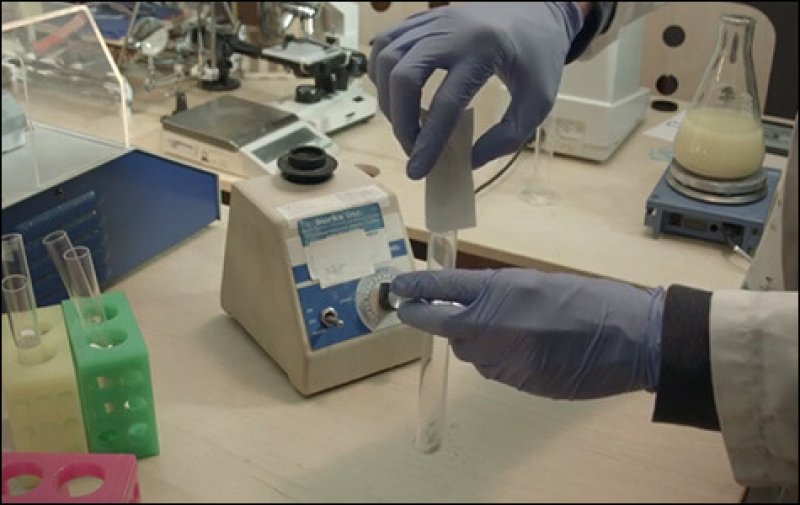For many vegans, cheese might be the most difficult thing to give up. Now, a group of biohackers in Oakland, California, are working to produce vegan cheese that just might taste like real cheese.
Sam Levin, writing for the East Bay Express, has the story:
Though it may sound like a cooking project, this vegan product is unlike any cheese that has ever been produced before — and the Counter Culture Labs members aren’t chefs. The group is made up of biohackers, meaning citizen scientists and do-it-yourself biologists who engage in a wide range of biology and biotech projects. And Real Vegan Cheese is foremost a biohacking experiment — one that the founders say could carry serious implications for food production if successful. Simply put, instead of using cows for milk, the group is working to genetically alter yeast to produce a milk protein that would then be used for cheese production. The first phase of the project is now underway, and the team hopes to have completed production of an edible vegan cheese by fall.
Watch the group’s video for their Indiegogo campaign below:
“I think the finished product is going to taste like Gouda,” Craig Rouskey, a member of Counter Culture Labs and molecular biologist, told Vice News.
Levin explains how the cheese would be made:
Here’s how it works: The team will insert bovine DNA — which is chemically synthesized and does not come from an animal — into living baker’s yeast cells, temporarily turning the yeast into a so-called “protein factory” that produces milk protein. The biohackers then extract that protein from the yeast and combine it with water, vegetable butter, and vegan sugar (instead of lactose), to make a milk substitute. Finally, this vegan milk can be turned into Real Vegan Cheese in the same way that normal cheese is produced from cow milk. The final food product will be a semi-hard cheese like Gouda. It will be totally vegan — and lactose-free.
“No animal is tortured in the production of this,” said Counter Culture Labs member Ahnon Milham, who is vegan. “You don’t have to worry about all the hormones and antibiotics.”
“The really awesome thing about doing cheese this way is it’s a renewable source of cheese,” said Rouskey. “We’re not going out to harvest nuts to do this. We’re not using cows that are totally polluting the environment. We are actually using a closed system.”
Levin reports on some of the team’s plans:
Once the process is refined, the team could continue to produce cheese from yeast with virtually no environmental impact. And it’s sustainable so long as the group can continue to grow the modified yeast, he said. While the team doesn’t have immediate plans to sell the product, Rouskey said he hopes to eventually create DIY cheese-making kits — similar to ones that already exist for winemaking and beer brewing — so that anyone can grow vegan cheese at home.
“I’m really most excited about democratization of science, teaching people about genetic engineering,” said Patrik D’haeseleer, another Counter Culture Labs member. “You can actually do these things yourself.” He added: “A lot of people have lots of fears around [genetically modified foods] without really understanding what they are.”
Read the full, original article: Inside the ethical cheese lab
Additional Resources:
- “Cheese: The GMO food even die-hard GMO opponents eat and love (and oppose a label for),” Genetic Literacy Project
- “Era of designer plants and animals edges closer with creation of synthetic yeast,” Genetic Literacy Project































